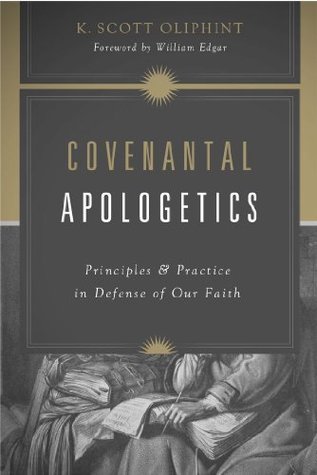More on this book
Community
Kindle Notes & Highlights
Read between
August 28 - September 20, 2017
In this light, and basic to everything else that we will say, we should recognize that every person on the face of the earth is defined, in part, by his relationship to a covenant head.
If we want to use a philosophical term for this approach (which is not necessary but could be useful at times), a covenantal apologetic is transcendental. A transcendental approach looks for the (so-called) preconditions for knowledge and life.
This apologetic approach, then, tries to make obvious both the presuppositions of the unbelieving position itself and the covenantal presuppositions that are at work in order to challenge the unbelieving position at its root. In that sense, it is a radical (from radix, “root”) approach. It attempts as much as possible to get to the root of the problematic position.
In order to know who this God is that we are discussing and defending, we cannot lose sight of the fact that it is the triune God revealed throughout history in the Son.
History can be properly defined only in light of what the second person of the Trinity has condescended to do—both in creation generally and for his people more specifically.
Any commitment that cannot account for the way that I and all others should live is doomed at the outset.
As a Christian defense, we should expect that the content of apologetics can substantially overlap with the content of preaching and evangelism.
We know God not because we have reasoned our way to him, or have worked through the necessary scientific procedures, or have inferred his existence from other things that we know; rather, we know him by way of his revelation. We know what God is like “because God has shown it” to us.
Apologetics, in many ways, is simply a battle over authorities. It involves making plain just where we stand, or better, where we rest, with regard to what we claim. It also involves encouraging our opponents to make plain where they rest their own case. The authority issue is always primary.
This sensus/suppression dynamic is a hermeneutical tool in a covenantal apologetic. It is at least a partial grid through which we should interpret all unbelieving positions, including false religions.


